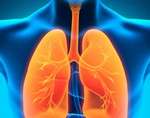Alopecia areata, a perplexing autoimmune disorder, strikes when your immune system mistakenly attacks hair follicles, causing unpredictable patches of hair loss that can sometimes progress to complete baldness on the head or body. While approximately 2% of the population will grapple with this condition, it often emerges during youth, typically between ages 10 and 25. The exact triggers behind alopecia areata remain elusive, though experts believe a mix of psychological stress, environmental factors like infections or toxins, and even diet may play a role.
Adding to the puzzle is alcohol, a substance with a complex relationship to hair health. While some studies have hinted at a link between alcohol consumption and general hair loss, when it comes to alopecia areata specifically, the evidence presents a confusing picture of potential benefits and harms.
The Conflicting Evidence on Alcohol’s Impact
Earlier research painted a clearer picture, suggesting a strong correlation between alcohol and hair loss. However, more recent large-scale reviews cast doubt on this conclusion. “Most hair loss isn’t actually linked to drinking,” explains Dr. Kimberly Salkey, an associate professor of dermatology at Virginia Commonwealth University School of Medicine in Richmond.
While the link might not be as strong as initially thought, alcohol can contribute to hair loss when excessive consumption overshadows healthy habits. This is where nutrition comes into play. Dr. Salkey highlights that “alcohol can hinder your body’s ability to absorb essential nutrients.”
Think of it like this: if you’re consistently prioritizing drinks over balanced meals, your body might lack the building blocks needed for hair growth, particularly crucial B vitamins (like thiamine or vitamin B1) that are vital for healthy follicles. Even moderate drinking can interfere with nutrient absorption, setting the stage for deficiencies and potential hair loss.
Beyond its nutritional impact, alcohol can exacerbate other factors known to worsen alopecia areata like inflammation — another reason why it could indirectly contribute to hair loss in this specific condition.
Could Alcohol Offer Unexpected Protection?
Adding to the complexity, some studies have unearthed a surprising connection: moderate alcohol consumption might actually offer protection against developing alopecia areata. For example, one study encompassing over 60,000 individuals found that both social and regular drinkers were significantly less likely to develop alopecia areata compared to those who abstained from alcohol altogether.
However, Dr. Anya Bandt, a dermatologist in private practice in San Francisco, urges caution when interpreting these findings. She explains that while “a few studies suggest moderate alcohol intake might have mild immune-modulating effects,” the evidence remains inconsistent. She believes lifestyle differences, genetics, and variations in drinking patterns are likely culprits behind these mixed results.
“Ultimately, more research is needed to understand this potential link,” adds Dr. Salkey. “In excess, alcohol does more harm than good.”
Navigating Alcohol Consumption with Alopecia Areata
Given the conflicting evidence, what’s the best approach for those managing alopecia areata who enjoy an occasional drink? The safest bet, as always, is moderation. The U.S. Dietary Guidelines recommend limiting intake to one drink per day for women and two drinks per day for men to minimize health risks.
But remember, “one drink” translates to a specific amount: 12 ounces of regular beer, 5 ounces of wine, or 1.5 ounces of 80-proof spirits. Dr. Bandt recommends staying hydrated alongside any alcoholic beverages and prioritizing nutrient-rich foods to counteract potential deficiencies from alcohol consumption.
A Balanced Perspective
Research on the interplay between alcohol and alopecia areata remains inconclusive. While excessive drinking can undoubtedly contribute to hair loss through nutritional depletion and inflammation, some studies hint at a possible protective effect of moderate consumption – but the evidence isn’t strong enough for definitive conclusions. Until more clarity emerges, prioritizing moderation, a balanced diet, and open communication with your healthcare provider about any concerns regarding alcohol consumption is key.

































